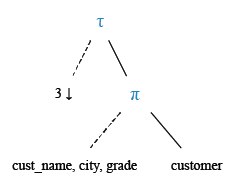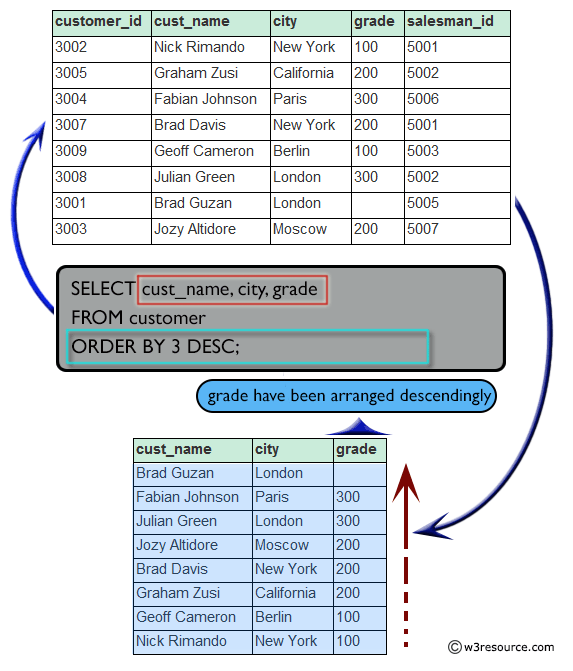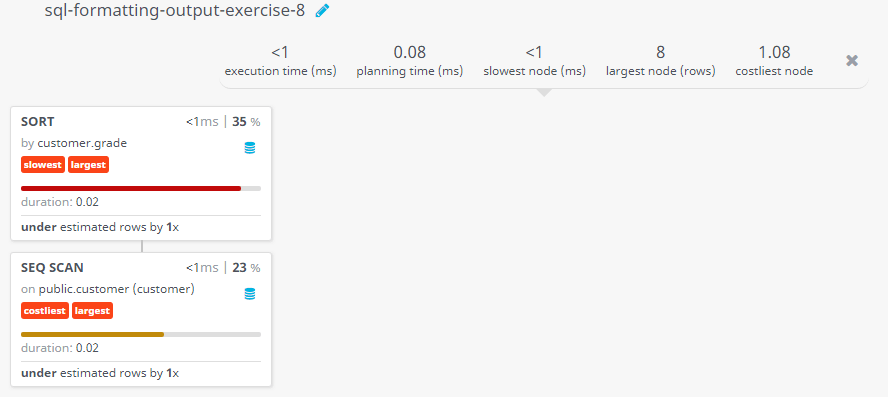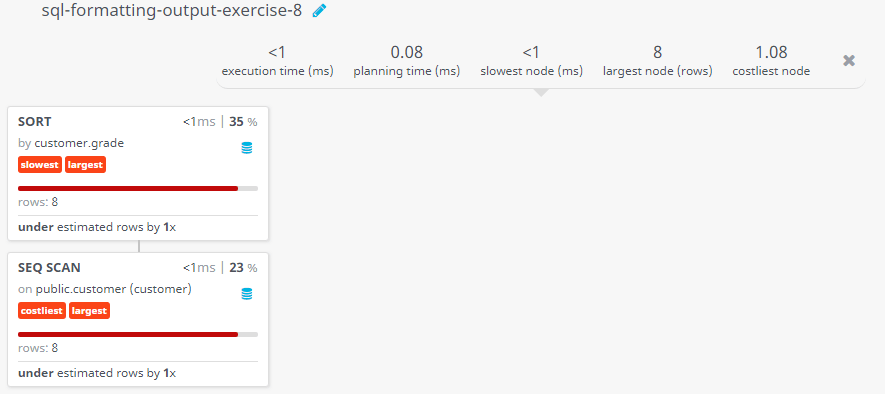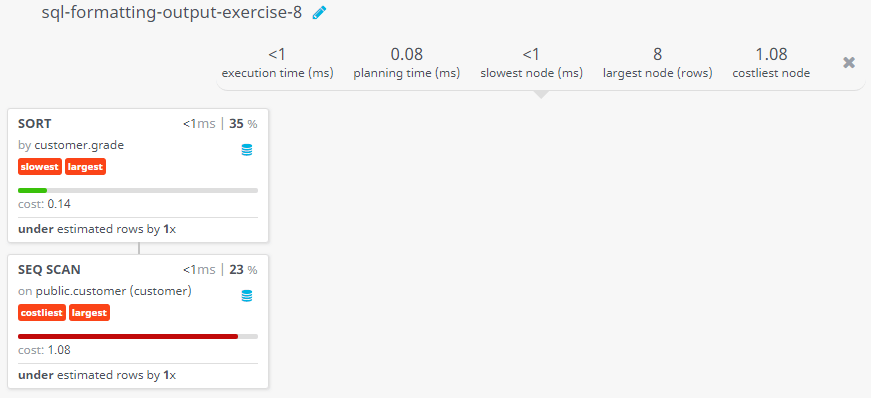SQL Exercise: Display customer name, city and grade by highest grade
Customers Sorted by Third Field
From the following table, write a SQL query to find all the customers. Sort the result-set in descending order on 3rd field. Return customer name, city and grade.
Sample table: customer
customer_id | cust_name | city | grade | salesman_id
-------------+----------------+------------+-------+-------------
3002 | Nick Rimando | New York | 100 | 5001
3007 | Brad Davis | New York | 200 | 5001
3005 | Graham Zusi | California | 200 | 5002
3008 | Julian Green | London | 300 | 5002
3004 | Fabian Johnson | Paris | 300 | 5006
3009 | Geoff Cameron | Berlin | 100 | 5003
3003 | Jozy Altidor | Moscow | 200 | 5007
3001 | Brad Guzan | London | | 5005
Sample Solution:
-- This query selects specific columns ('cust_name', 'city', 'grade') from the 'customer' table.
-- It orders the result set by the third column ('grade') in descending order using the column index.
SELECT cust_name, city, grade
-- Specifies the table from which to retrieve the data (in this case, 'customer').
FROM customer
-- Orders the result set by the third column ('grade') in descending order using the column index (3).
ORDER BY 3 DESC;
Output of the Query:
cust_name city grade Brad Guzan London Fabian Johnson Paris 300 Julian Green London 300 Brad Davis New York 200 Jozy Altidor Moscow 200 Graham Zusi California 200 Nick Rimando New York 100 Geoff Cameron Berlin 100
Code Explanation:
The said query in SQL that retrieves the customer name, city, and grade from the 'customer' table and orders the result set by the "grade" column in descending order. The result will show the customer name, city, and grade with the highest grades appearing first in the result set.
Relational Algebra Expression:
Relational Algebra Tree:
Explanation:
Visual presentation :
Go to:
PREV : Maximum Purchase per Salesperson per Date.
NEXT : Customer Unique Orders and Maximum Purchase.
Practice Online
Query Visualization:
Duration:
Rows:
Cost:
For more Practice: Solve these Related Problems:
- Write a SQL query to retrieve cust_name, city, and grade, sorting by grade in descending order then by cust_name ascending.
- Write a SQL query to list customers with details sorted by grade descending, including only records with non-null grade.
- Write a SQL query to select customer name, city, and grade, sorting by the length of grade (when cast to a string) in descending order.
- Write a SQL query to output customer details sorted primarily by grade descending and secondarily by city descending.
- Write a SQL query to display cust_name, city, and grade sorted by grade in descending order, filtering out records where city has fewer than five characters.
Have another way to solve this solution? Contribute your code (and comments) through Disqus.
What is the difficulty level of this exercise?
Test your Programming skills with w3resource's quiz.


